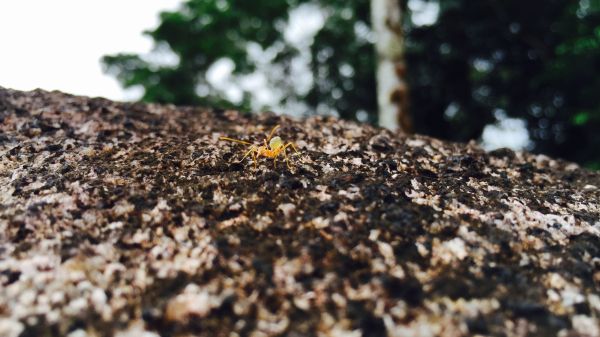Call for submissions - Environmental Education SIG, AERA - Deadline July 22, 2016

Conference Theme for EE SIG
Whose Knowledge(s) and What Action(s)?:
(Re)Considering Environmental Education for Social Justice and Sustainability
The AERA 2017 Annual Meeting will be held this year in San Antonio, Texas and the theme of this upcoming year’s conference is “Knowledge to Action: Achieving the Promise of Equal Educational Opportunity” (Gadsen, Arzubiaga & Davis, 2016). For the Environmental Education Special Interest Group (EE SIG) conference theme, we build upon the AERA general call and, in this critical moment, we are asking the EE research community to turn their attention towards the following questions: Who/what benefits and who/what suffers unjustly in connection with the knowledge(s) and action(s) shaping what is—and historically has constituted—Environmental Education? Specifically, we ask, “How can EE scholar-activists, as educational researchers, (re)consider and then put into action Environmental Education?”
In a world with approximately 7.2 billon people, it is estimated that increasing disparities between the estimated 700 million living in extreme poverty and the rest of the world is a matter of life and death (United Nations, 2014). As researchers in the EE community, we can attest that such hardship is not limited to the world’s impoverished human communities; the United Nations (2014) reports that “global emissions of carbon dioxide (CO2) have increased by almost 50 per cent since 1990” (p. 40) and scientists have argued that this increase is linked to changes in climate in connection with floods, droughts, famine, and war (IPCC, 2007, 2013; American Meteorological Society, 2012; Anderegg, 2010; Doran & Zimmerman, 2009; Oreskes, 2004). Simultaneously, as current climate changes contribute to a myriad of social suffering, the WWF (2014) reported that 52% of species were lost from the world’s diverse ecosystems as of 2014. Such loss of the planet’s biodiversity, combined with a documented increase in loss of cultural diversity, contributes to a massive and rapid loss of habitat and life. In short, we are living in a time of immense social suffering and environmental degradation.
As we look back at the past, take actions in the present, and envision what the next decades might bring for—and from—EE, we recognize the common threads woven through these hardships. These threads are the dominant Western industrial assumptions that are based on and rooted in systems of exploitation, violence, and a refusal to understand and embrace mutuality and interdependence. Confronted by this stark reality, this year’s theme invites proposals for EE research that considers and contributes to the diverse positions and perspectives shaping the knowledge(s) constituting, and constituted by, EE. Additionally, this year’s theme asks EE researchers to explore how it is that such considerations move educators, and educational researchers, toward researching how learners are, or ought to be, learning knowledge(s) and actions that alleviate and/or end the unjust suffering of social inequity and environmental degradation.
Given the diversity of perspectives and practices in EE, the AERA conference gives us an opportunity to share, learn, work, and organize collectively in regards to how we diversely understand and contribute to what is EE and how such collaborations move us to action. As you prepare to submit proposals for the 2017 conference, we invite you to consider the theme, Whose Knowledge(s) and What Action(s)?: (Re)Considering Environmental Education for Social Justice and Sustainability. This EE SIG call for proposals offers an intentional and hopefully provocative frame for the 2017 conference, and ideally, proposal submissions will take up the proposed questions that attempt to productively question the very foundations of EE. Although we hope to receive submissions which directly engage this year’s EE call, a wide variety of EE proposals are encouraged, all EE proposals will be enthusiastically reviewed for the program.
We actively encourage strategic partnerships and creative session proposals in the myriad ways you can envision them. Options available for submissions are a paper, poster, paper/poster session, roundtable, demonstration/performance, symposia, working group roundtables, workshops, and off-site visits. Each of these offer the opportunity for creative, interactive sessions. We request that submitters consider these formats with full awareness of the expectations for each format (explained in detail the 2017 AERA Annual Meeting Call for Submissions pg. 3-11). We encourage creative use of sessions and request that submitters directly explain in their proposals how the session will be structured and will adhere to their chosen format.
Coordinating sessions with other AERA SIGs has proven bureaucratically difficult in years past, but we know that such collaborations are mutually beneficial and remain hopeful that they can be facilitated. We will make every effort to encourage and support such collaboration if members so desire. Alternatively, consider reaching out to other scholars across sub-disciplines/SIG foci and co-authoring proposals together.
Please distribute this call for proposals widely. It is important for the life of the SIG: the number of program slots we receive (i.e. the number of proposals we can accept) is the direct result of the number of submissions we receive and the number of active EE SIG members (renew/join the SIG when you submit your proposals!). Given the critical importance of ecological perspectives in educational research, we need to collectively ensure that EE perspectives are well represented on the AERA 2017 program. Generating an unprecedented number of diverse submissions this year will help to do so!
The deadline for submissions is July 22, 2016. Full details on the submission process and proposal specifications can be found at www.aera.net. As a reminder, text length for proposals may not exceed more than 2000 words for individuals or 500 words for each paper or presentation in a multi-presenter session. All proposals must be submitted electronically at the website and may not be submitted via email.
For proposal submissions or to volunteer to serve as a Chair or Discussant, please login to “My AERA” at aera.net.
For any further questions feel free to e-mail john.lupinacci@wsu.edu.
Sincerely,
John Lupinacci
EE SIG Program Chair 2017
http://www.aera.net/SIG033/Environmental-Education-SIG-33
References
American Meteorological Society. (2012). Climate Change: An Information Statement of the American Meteorological Society. AMS. Retrieved on February 19, 2015 from http://www.ametsoc.org/policy/2012climatechange.pdf
Andereeg, W. R. L. (2010). Expert Credibility in Climate Change. Proceedings of the National Academy of Sciences. 107(27) 12107-12109.
Doran, P. T., & Zimmerman, M. K. (2009). Examining the scientific consensus of climate change. Eos Transactions American Geophysical Union. 90(3). 22.
Gadsen V. L., Arzubiaga A. A., & Davis, J. E. (2016). 2017 AERA annual meeting theme. Retrieved from: http://www.aera.net/EventsMeetings/AnnualMeeting/tabid/10208/Default.aspx
Oreskes, N. (2004). Beyond the ivory tower: The scientific consensus on climate change. Science. 306(5702). 1686.
United Nations (2014). The millennium development goals report 2014. United Nations. Retrieved on January 29, 2015 from http://www.un.org/millenniumgoals/2014%20MDG%20report/MDG%202014%20Engli...
United Nations Children’s Fund (2014). The state of the world’s children 2015: Executive summary. UNICEF. Retrieved on January 29, 2015 from http://www.unicef.org/publications/files/SOWC_2015_Summary_and_Tables.pdf
WWF. (2014). Living planet report 2014: Species and spaces, people and places. In R. McLellan, L. Iyengar, B. Jeffries, & N. Oerlemans (Eds.), WWF. Gland, Switzerland. Retrieved from http://wwf.panda.org/about_our_earth/all_publications/living_planet_report
John J. Lupinacci, Ph. D.
Assistant Professor, Washington State University
Department of Teaching and Learning
Cultural Studies & Social Thought in Education
Cleveland Hall, Room 340
PO Box 642132
Pullman, WA 99164-2132
Phone: (509)335-6838 Fax: (509)335-5046
E-mail: john.lupinacci@wsu.edu
